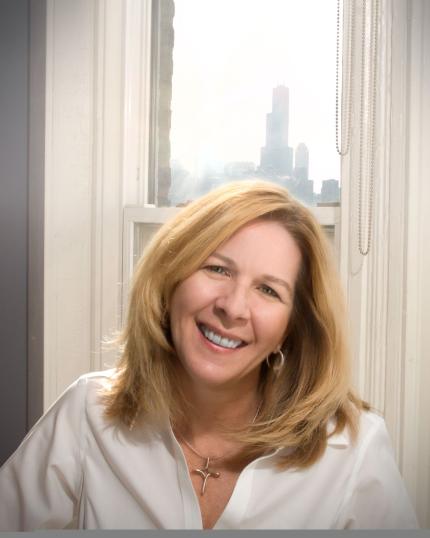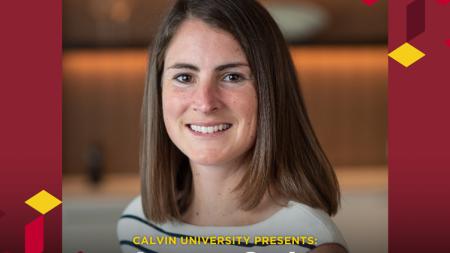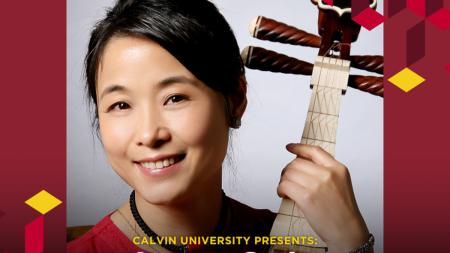Large Gift Spurs Chicago Church to Reach Out in ‘Risky Acts of Love’

Laura Sumner Truax
Calvin College
Rev. Laura Sumner Truax wasn’t sure what to think when a lawyer told her in 2014 that her nondenominational church near downtown Chicago would be receiving a check for $1.6 million.
The money came from the sale of a housing-complex property that her church and other churches in the area had helped develop in the 1970s.
Certainly she was pleased to learn of the generous and unexpected gift, but she was also troubled, Truax said at Calvin College’s January Series on Jan. 11. The award-winning lecture series is taking place Monday through Friday through Jan. 23.
“The money more than doubled our annual budget, and I imagined all that we could do with it,” Truax said in her presentation, titled Love Let Go: Radical Generosity for the Real World.
“But then I remembered watching a church calcify under a large endowment, and of family squabbles over inheritances. I knew there would be strong opinions in our church over what we would do with the money. I wondered, ‘Will we survive this windfall’?”
Truax, who holds degrees in divinity, pastoral studies, and spirituality from Loyola University Divinity School, is currently working toward her Doctor of Ministry degree from Fuller Theological Seminary.
She also serves as a teaching pastor for World Vision and for the University of Chicago Divinity School and is the author of two books. In her book, Love Let Go, she writes about what her church eventually did with the money.
“We decided to use the first 10 percent of the money by giving everyone in our church a check for $500,” she said, adding that coming to that decision was not easy.
“We [church leaders] had intense, intractable, hard-hitting conversations over this.”
In the process of reaching a decision, they had discussed — at the suggestion of Truax — the generosity of God, who is described in Genesis as creating man and woman and placing some of himself in them — creating them in his image — and then telling them that they were being given the task of serving as stewards of all creation.
“Generosity is hardwired into our essential nature by God, who is a generous God,” said Truax. “Before [we] humans felt the spasm of self-protection, we knew the pleasure of plenty.”
When they distributed the money to the more than 300 members in the church, said Truax, they wanted to reflect the generosity of God and show that church leaders trusted them “to do something good in the world with it; to do whatever God put on their hearts.”
And that is exactly what happened — church members found ways to make a difference in their community and learned, said Truax, “the startling truth that money can buy happiness — when you give it away.”
She recalled the story of one member, named Steve. Steve had been homeless for many years, living under a Lakeshore Drive viaduct, and had, with the help of church members, found a one-room apartment at the local YMCA.
Steve could have used his $500 for any number of things but decided to use it by taking some of his friends from under the viaduct out for a movie and a “real restaurant meal,” said Truax.
Then there were Adam and Rosemary, a couple who combined their checks to pay for the funeral and a meal for the family next door whose son had been murdered. “It was a tangible expression of Christ in their midst. They saw the family’s need for their surplus,” said the pastor.
Another couple used their money, along with donations from some of their friends, to create a scholarship fund for engineering students.
Miss Dora, an elderly senior living on a fixed income, gave money to her niece, the first person in her family to attend college, to buy books for classes.
Another church member used his money to buy workout shoes for athletes in the West Chicago neighborhood of Lawndale, and yet another hopes to get approval from a Chicago university to install a sink for Muslim students to use as part of their purification ritual before entering the interfaith chapel for prayers.
With $1.44 million left of the original donation, the church had to decide what to do next. Among the first things they did was set up a loan program that area residents could use instead of going to payday-lending stores that charge borrowers high rates of interest. They plan to do other things as well.
“In doing this, to use a popular phrase, we learned that ‘we could be the change we wanted to be in the world,’” said Truax.
The original donation to the church made U.S. national news, and since then other churches have called Truax to learn more about how and why they have been so generous. One church had received $25 million from a church member who, the church thought, had been poor. That church hopes to use the money in creative ways to help others, said Truax.
“It is amazing how God works. His original act of love and creation keeps reaching out and encouraging others to do things, seemingly insignificant, that keep reaching out and erupting in risky acts of love.”


